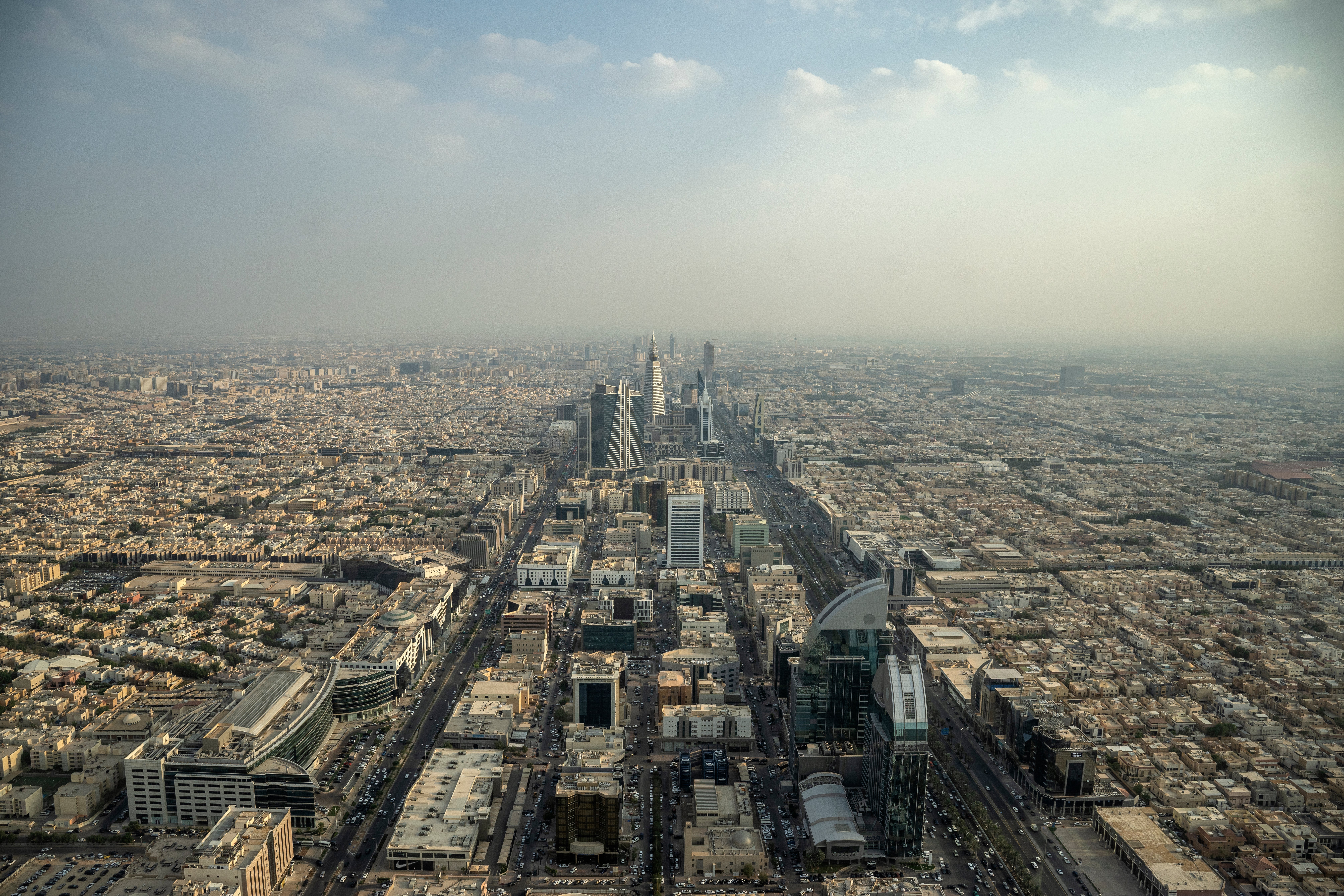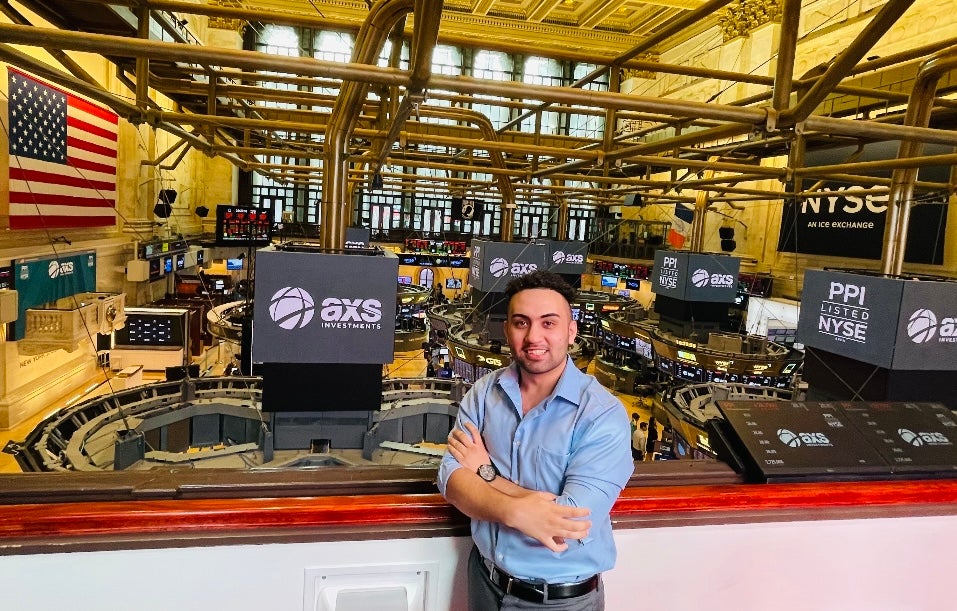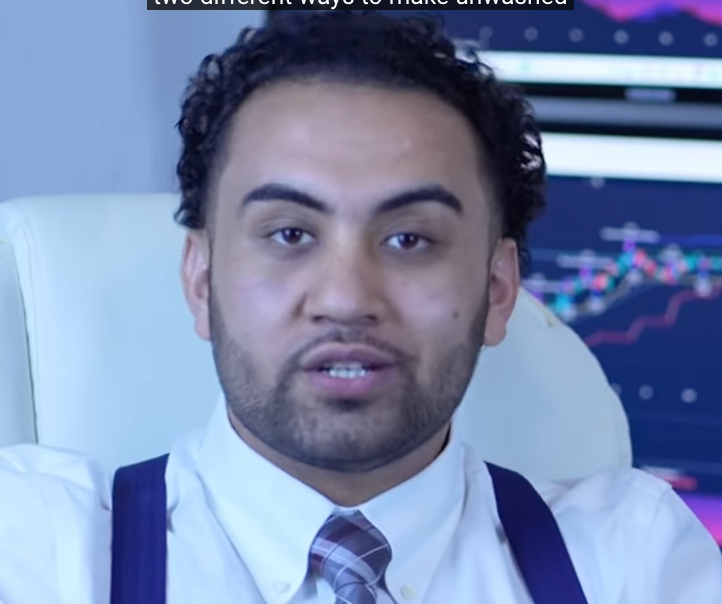When 23-year-old investor Nicholas Mugalli decided to open an office in Riyadh in 2023, he was eager to cozy up to the Saudi government to boost his chance of success.
So after self-described filmmaker Beau Kerouac approached the New York City resident with an opportunity to invest in a documentary showcasing the people and places of the kingdom in the best possible light, he jumped at the chance.
It seemed like a safe bet. Kerouac boasted of projects in the works starring Hollywood A-listers, including Leonardo DiCaprio and Tom Cruise, and claimed he had deals going with the industry’s biggest studios. His extensive connections guaranteed the doc would be a winner, and he promised more than $24 million in profit, Mugalli says. More importantly, the project would allow Mugalli to garner the “good will” of the Saudis, while promoting his own business at the same time.
But, according to a $70 million-plus lawsuit obtained by The Independent, Kerouac’s pitch was nothing more than a scam, ensnaring an unwitting Mugalli with the wannabe filmmaker’s “cultivated suave English accent” and “dashing art of persuasion.” Even Kerouac’s name was fake, court papers allege.
The lawsuit describes a “villainous ploy” involving political intrigue, financial treachery, and outright deception, which played out across the U.S., Europe, and the Middle East until the audacious scheme finally came undone. Kerouac is accused of stealing at least $500,000 from investors in the film, half of which came from Mugalli, according to his complaint, which says Kerouac’s actions displayed “a high degree of moral turpitude,” as well as “wanton dishonesty.”

Reached by phone on Wednesday, a bewildered-seeming Kerouac, who lives in the U.K., insisted he had done nothing wrong, and was unaware he was being sued until The Independent contacted him for comment.
“None of this makes any sense,” Kerouac argued, calling Mugalli’s claims “ludicrous.”
“None of these claims are true,” Kerouac emphasized in a follow-up email.
He said he has been unable to reach Mugalli in recent months, and did not want to offer further details before contacting a lawyer to address the allegations in the suit.
In an email, Mugalli’s attorney, Sean Holas, told The Independent that the dispute is “not a cookie-cutter” case.
He claimed Kerouac caused “numerous harms,” and that Mugalli and his company now “seek justice and compensation… for damages caused by the fraudulent misrepresentations and self-dealings of Mr. Kerouac.” Mugalli “remains committed” to completing the unfinished documentary, the lawyer added.
The stranger-than-fiction tale begins in October 2023, when Mugalli, who claims to run a hedge fund and have a personal net worth of $100 million, was casting about for ways to impress his Saudi hosts, according to a complaint filed February 4 in New York State Supreme Court.

Mugalli was introduced to Kerouac in early 2024 by cameraman Sheldon Herron, a mutual acquaintance, the complaint goes on. It says Kerouac proposed shooting a doc titled RAWI: The Storyteller, funded in part by Mugalli, showcasing the people, places, and “rich cultural history” of Saudi Arabia. The rest of the budget would come from an English film school Kerouac had solicited for a donation, along with a former pro rugby player, according to the complaint.
Mugalli was impressed with Kerouac’s pitch deck for the documentary, which sought a $3 million total budget. It listed past work with Paramount, Universal, and Netflix, upcoming projects with DiCaprio, Cruise and Jake Gyllenhaal, among other megastars, and Mugalli believed that funding and producing the film would reflect well on his company, according to the complaint.
Kerouac first offered Mugalli a producing credit in exchange for a “vintage classic car,” according to the complaint. But, during a follow-up meeting in Italy, Kerouac asked Mugalli to kick in $7.2 million for the project, which Mugalli was hesitant to fork over.
However, Mugalli did agree to invest $250,000 once Kerouac told Mugalli he expected to later sell the rights to the finished film for a projected $24 million, the complaint states.
Kerouac, who describes himself online as an artist and activist, began attracting public notice as a filmmaker in 2022, after reaching out to James Sandford, a former rugby union star who was working to revive a defunct English rugby club, the Worcester Warriors, and offering to make a “behind-the-scenes” documentary about Sandford’s initiative. An article at the time in the Worcester News referred to Kerouac as a “Hollywood director.”

It was through Sandford that Kerouac was introduced to Herron, a film editor and director of photography who has worked on projects for artists like Guy Ritchie, Jerry Bruckheimer, and Justin Timberlake.
Mugalli’s complaint says Kerouac opportunistically pegged Herron as the person who would provide “the veil of legitimacy he needed” to procure high net-worth individuals and “market himself as an established filmmaker.” To supplement this, Kerouac set up an IMDb page claiming he had collaborated with renowned actors such as Richard E. Grant, and Jeremy Irons, “among many others.”
Spencer Matthews, a cast member on Channel 4’s reality show Made in Chelsea, was offered $125,000 to provide the documentary’s voiceover, the complaint states, plus a percentage of profits on the backend from the film’s eventual sale – a tidy sum for a fairly easy lift.
But after positioning himself as a top auteur, Kerouac’s “lack of production set etiquette, protocol, and professionalism,” along with an apparent inability to “write a script himself,” immediately raised eyebrows once filming on RAWI began during the first part of 2024, according to the complaint. It goes on to describe an obvious “lack of experience” on his part, underpinned by a “‘fake-it-‘til-you-make-it’ persona,” which came into sharp focus once the cameras started rolling.
At the end of July, an email from one of the film’s investors to several others “expressed concern” about the legitimacy of a series of receipts Kerouac had submitted, the complaint states. Most hadn’t actually been paid, and further investigation revealed Kerouac blew through a large portion of the film’s budget before production even began, it alleges.
A short time later, Herron, who did not respond to multiple requests for comment by The Independent, was experiencing his own crisis of confidence in Kerouac, and emailed the film’s investors from a container ship in the middle of the Mediterranean, where he said he was shooting a film with Jason Statham, according to an exhibit filed in court alongside Mugalli’s complaint.
“This whole situation has been incredibly stressful as it unravels,” Herron wrote. “I spent the past year being utilized for my skills to help create these assets with Beau and him being so ridiculously under-qualified and under-skilled I was always very confused by his outrageous statements of previous work. Not only have I spent this time under this scum bag [sic] … but also brought Nick to the table… which now I regret massively. I had absolutely no idea what this guy was up to, and now we know.”
At this point, the complaint states, an “unexpected plot-twist” suddenly emerged.
Kerouac not only didn’t have the impressive resume he claimed, he wasn’t even who he said he was, the complaint says.
In actuality, the complaint contends “Beau Kerouac” is a man named Michael John Stevens, who “contrived a new identity and forged credentials as an established filmmaker to solicit tens of millions of dollars/pounds from unsuspecting investors for upcoming films that he had next to zero association.”

The complaint describes Kerouac as “an aspiring artist with little to no recognition, and almost zero experience in the film industry,” who “devised a plan to rebrand himself as a prestigious filmmaker in order to infiltrate exclusive social and professional circles that he only ever viewed as an outsider.”
Kerouac told The Independent that there was “nothing nefarious” about the name change, which he said he did for professional purposes.
Ultimately, the complaint says Kerouac stiffed Matthews out of his six-figure fee after he provided the voiceover, as contracted, never paid Herron for necessary post-production work, and it estimates it will cost at least $300,000 in editing fees alone to complete the film.
Instead, Kerouac spent the film’s budget on pricey Rolex watches, cash withdrawals, first class airline tickets, and luxury hotel stays, the complaint states. A source with knowledge of the situation said Matthews, who declined to comment for this article, recorded the voiceover, as contracted, but never got paid.
As for Mugalli’s hopes of impressing the Saudis, the complaint says he not only blew that chance, but claims the entire experience has undermined his burgeoning official relationships in the kingdom.
Mugalli is demanding “no less than” $72 million from Kerouac on each of three causes of action: $24 million for breach of fiduciary duty, $24 million for breach of contract, and $24 million for detrimental reliance, as well as another $750,000 for unjust enrichment, conversion, and fraudulent inducement, plus punitive damages and attorneys’ fees.
Kerouac now has roughly 30 days to file a formal response to the allegations.


.jpeg?trim=0,0,0,0&width=1200&height=800&crop=1200:800)
